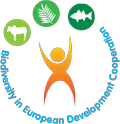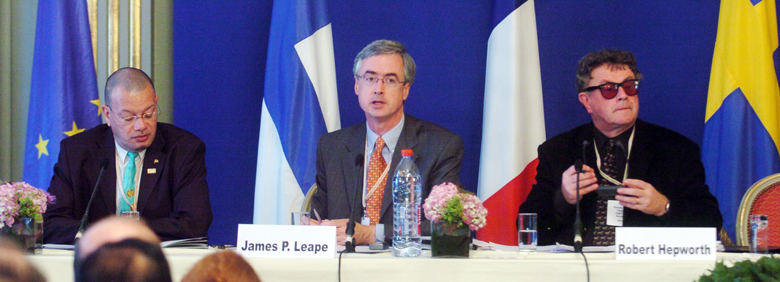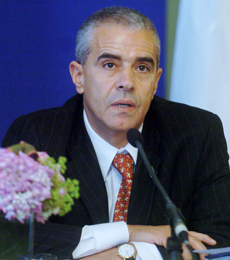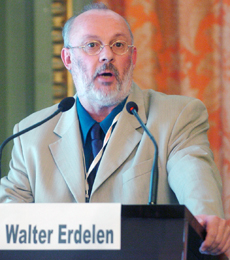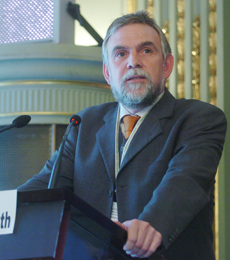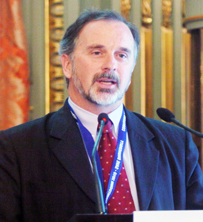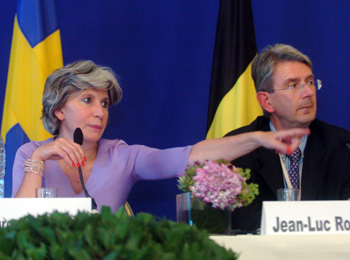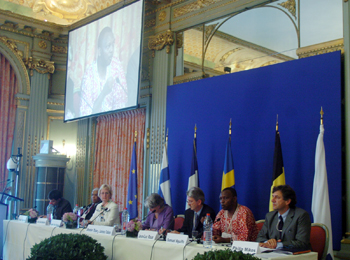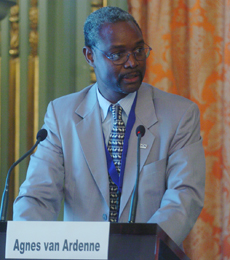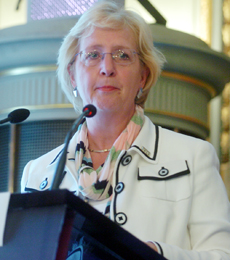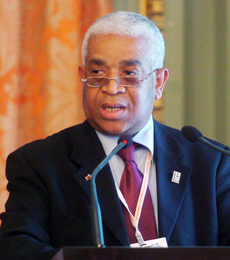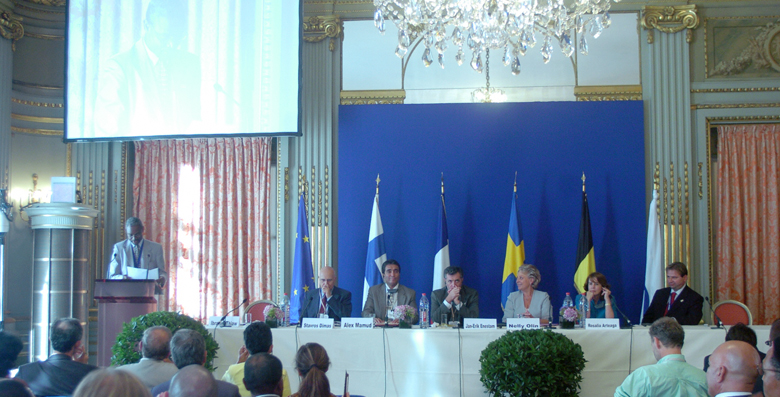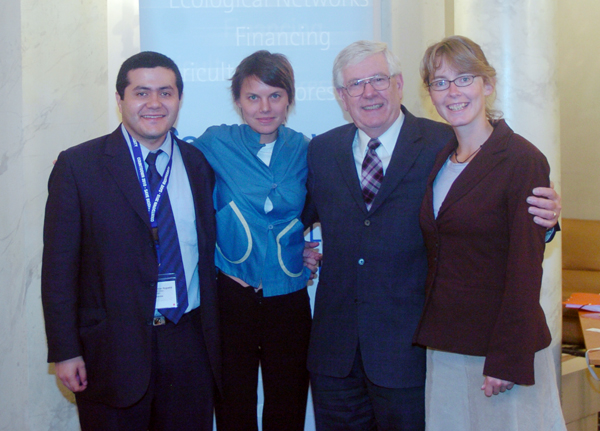|
||||||||||||
|
On Thursday morning, participants viewed the short film produced by EuroAid “What Nature does for Development.” James Leape, Director General, WWF International, chaired the session, which started with a EuropeAid movie on EU-funded grassroots projects in the DRC. Chair Leape reaffirmed that taking the 2010 target seriously is a prerequisite to achieving the MDGs. However, he noted that we are “in danger of losing the fight” unless the EU makes more effort to direct its development assistance towards biodiversity targets, and to ensure that all of its other policies and practices are in accordance with these targets. He said biodiversity conservation is still hugely under-funded, and noted the unique position of civil society to foster innovative solutions. Stressing the importance of clear communication, Robert Hepworth, CMS Executive Secretary, lauded the EC’s facilitating role in conservation, naming as an example its support of the Scientific Task Force on Avian Influenza.
|
|||
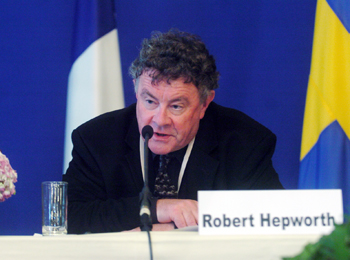 |
|||||
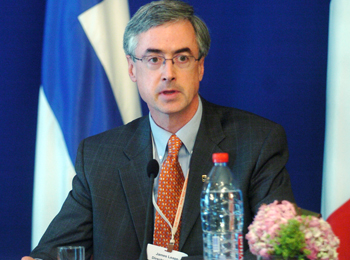 |
|||||
| Robert Hepworth, CMS Executive Secretary | |||||
|
Chair James Leape, Director General, WWF International |
|||||
|
The outcomes of the workshops
|
|||
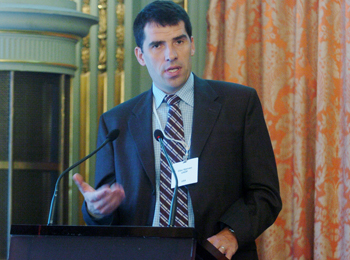 |
|||||
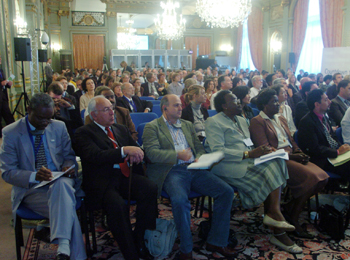 |
|||||
| Olav Kjørven, Director, Energy and Environment Group, UNDP | |||||
|
Participants during Olav Kjørven intervention |
|||||
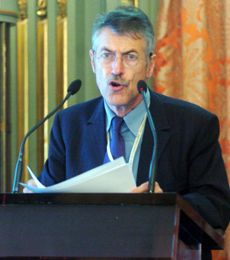 |
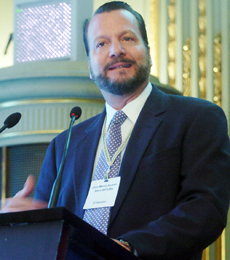 |
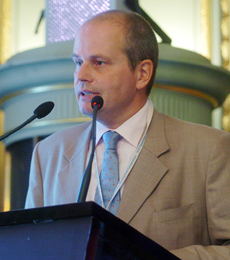 |
|||||
|
Alain Lipietz, European Parliament |
Juan Marco Álvarez, Salva NATURA, El Salvador |
Willem Ferwerda, IUCN Netherlands Committee |
|||||
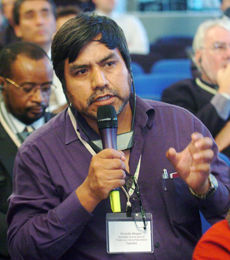 |
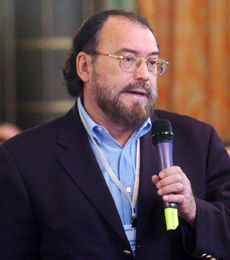 |
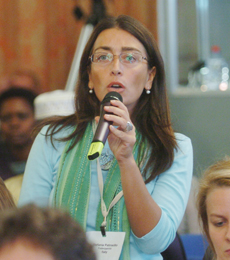 |
|||||
|
Rodolfro Magne, Sociedad Sueca para la Protección de la Naturaleza, Sweden |
Alberto Paniagua V., PROFONANPE, Peru |
Stefania Petrosillo, Federparchi, Italy |
|||||
|
This panel took place on Thursday morning and was chaired by Jean Ronald Jumeau, Minister of Environment and Natural Resources, A specific EU development challenge: EU OCTs: Asii Chemnitz Narup, Minister of Health and Environment, Georges Handerson, Minister of Sustainable Development, One participant called for increased attention for the severe problems faced by the Amazon region. Describing the Amazon as the lungs as well as the air conditioning of the world, she said the EU’s actions to combat climate change should focus more on this region.
|
|||
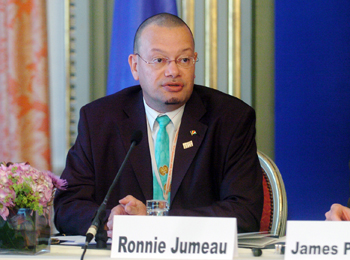 |
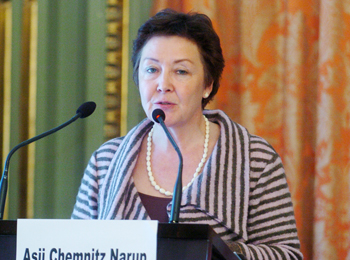 |
||||
|
Jean Ronald Jumeau, Minister of Environment and Natural Resources, Seychelles
|
Asii Chemnitz Narup, Minister of Health and Environment, Greenland |
||||
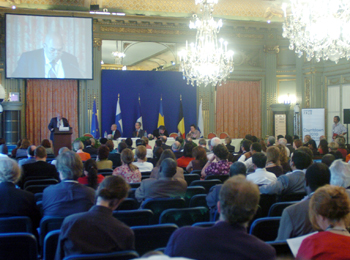 |
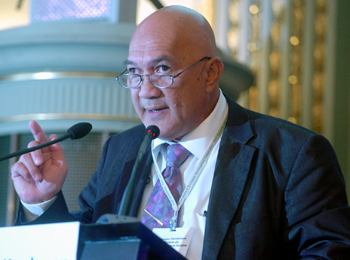 |
|||
|
Georges Handerson, Minister of Sustainable Development, French Polynesia
|
||||
|
This panel took place on Thursday morning and was chaired by Robert Hepworth, CMS Executive Secretary. Ahmed Djoghlaf, CBD Executive Secretary, noted that commitment to the 2010 target was reiterated at CBD COP-8 by ministers, heads of delegations, civil society, multilateral and bilateral donors, and the private sector. He stressed the importance of implementing agreed norms and goals by bringing down barriers between sectors. He called on Jochen Flasbarth, Director General, Nature conservation and Sustainable Use of Nature, German Federal Ministry for the Environment, Nature conservation and Nuclear Safety, described Walter Erdelen, Assistant Director General for Natural Sciences, UNESCO, referred to the Paris Declaration’s principles of integration of biodiversity into economic and policy decisions. He said that BEDC’s Message from
|
|||
|
This panel was chaired by Laurence Tubiana, Director, Setting the scene: a vision beyond From Words To Action – Implementing The Message: Charles Sylvain Rabotoarison, Minister for Environment, Water and Forests, Madagascar, outlined national efforts to link biodiversity conservation to development, including reforestation initiatives and the creation of a trust fund for protected areas. He underscored the importance of awareness raising, close partnerships and regional approaches. He recommended the Cotonou Agreement to include biodiversity protection as a prerequisite for projects funded by the EC. Samuel Nguiffo, Director, Environment and Development Centre, Jean-Luc Roux, Greenpeace International, asked for leadership and determination to make the world’s ambitions, including combating poverty and the loss of biodiversity, a reality. He advocated a radical paradigm shift in global economic thinking, including through a reflection on over-consumption and a real commitment to existing international agreements. He also called for: stronger sanctions on illegal exploitation of natural resources; immediate moratoria on sites where exceptional biodiversity values are threatened; and rapid establishment of a global network of protected areas, particularly covering the marine and forest realms. Philip Mikos, Head, Sustainable Management of Natural Resources, DG Development, EC, said ongoing initiatives are progressing well, including on certification. He noted that international organizations have a role to play in controlling legal trade, and said progress can still be achieved in the area of public awareness. On connecting the worlds of environment and development, he called for political will from donor communities and the active involvement of beneficiary governments. Olav Kjørven, Director Energy and Environment, UNDP, pointed out that more UNDP resources are spent on biodiversity-related projects than on any other environmental issue. He highlighted a recently launched private MDG support system aimed at scaling up action to achieve the MDGs.
|
|||
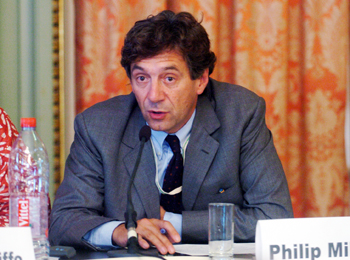 |
|||||
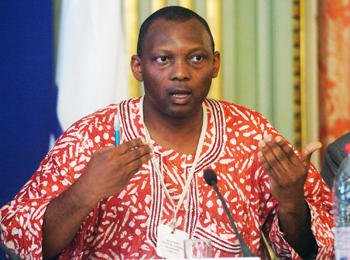 |
|||||
| Philip Mikos, Head, Sustainable Management of Natural Resources, DG Development, EC | |||||
|
Samuel Nguiffo, Director, Environment and Development Centre, Cameroon |
|||||
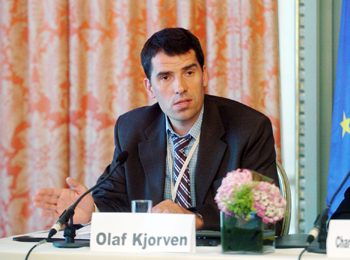 |
|||||
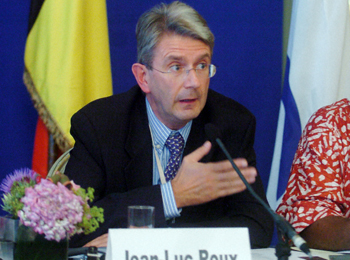 |
|||||
| Olav Kjørven, Director, Energy and Environment Group, UNDP | |||||
|
Jean-Luc Roux, Greenpeace International |
|||||
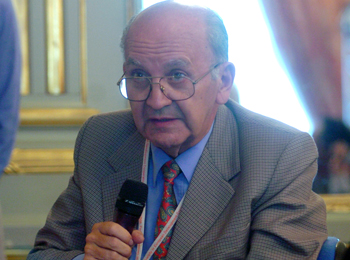 |
|||||
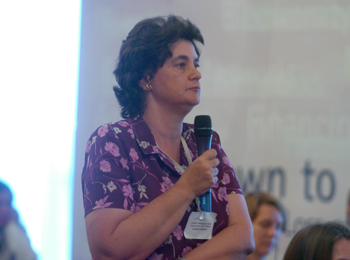 |
|||||
| Rodrigo Gámez, Instituto Nacional de Biodiversidad, Costa Rica | |||||
|
Corinda Sebastiana Essex, Government of St. Helena, United Kingdom |
|||||
|
This panel was chaired by Tamas Marghescu, Regional Director for Jan-Erik Enestam, Minister of Environment, José Salazar García, Minister of Agriculture,
|
|||
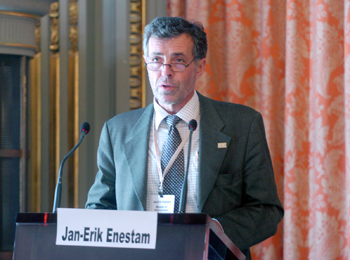 |
|||||
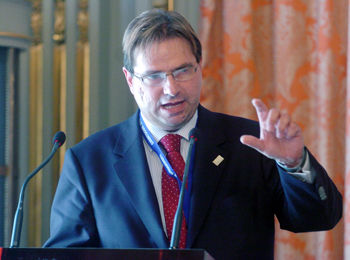 |
|||||
| Jan-Erik Enestam, Minister of Environment, Finland | |||||
|
Tamas Marghescu, Regional Director for Europe, IUCN |
|||||
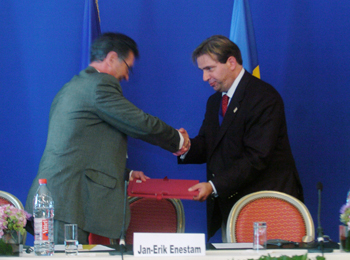 |
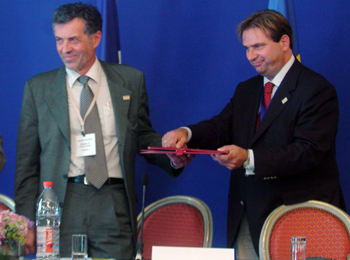 |
|||
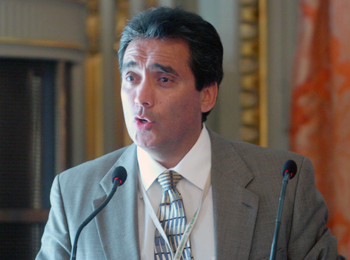 |
|||||
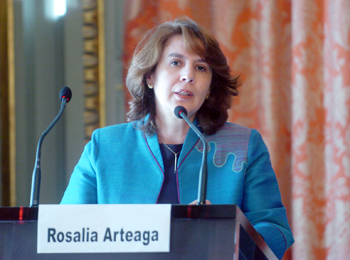 |
|||||
| José Salazar García, Minister of Agriculture, Peru | |||||
|
Rosalia Arteaga, Former President of Ecuador |
|||||
|
This panel was chaired by Ibrahim Thiaw, Acting Director, IUCN. Stavros Dimas, Commissioner for the Environment, EC, asserted that nothing is more important than stopping biodiversity losses, and that business as usual is not an option since these losses are accelerating. He noted that EU policies, including development and economic policies, must include biodiversity to support attainment of MDGs on poverty eradication, health and water. He called on developing countries to integrate biodiversity into development plans. He said that actions must be taken on: trade liberalization to remove subsidies for agriculture and fisheries; economic analysis to value ecosystem services; innovation in approaches on climate change and forests; and EU funding for biodiversity. Enestam stressed that in order to accelerate the mainstreaming of biodiversity into development policies, an enhanced knowledge base is needed at all levels, in developed as well as developing countries. He encouraged developing countries to improve the political and administrational frameworks of environmental issues, and called for increased political strength and long-term vision. He also called for enhanced coherence in EU policies and for EU assistance to developing countries to implement existing global environmental agreements. Lauding Countdown 2010 as an effective platform to share information and experiences, and as a framework for action, he pledged Nelly Olin, French Minister of Ecology and Sustainable Development, cautioned against short-term decision making and conflicts between environment and development objectives. She reaffirmed
|
|||
L-R: Ibrahim Thiaw, Acting Director General, IUCN; Stavros Dimas, Commissioner for the Environment, EC; José Salazar García, Minister of Agriculture, Peru; Jan-Erik Enestam, Minister of Environment, Finland; Nelly Olin, French Minister of Ecology and Sustainable Development; Rosalia Arteaga, Former President of Ecuador; and Tamas Marghescu, Regional Director for Europe, IUCN
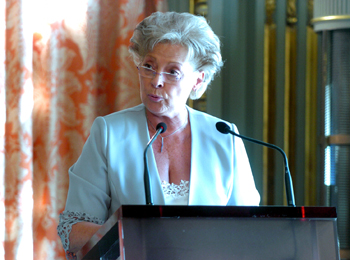 |
|||||
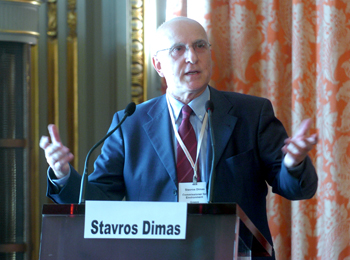 |
|||||
| Nelly Olin, French Minister of Ecology and Sustainable Development | |||||
|
Stavros Dimas, Commissioner for the Environment, EC |
|||||
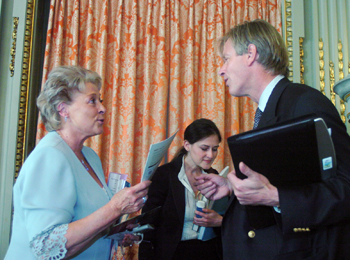 |
|||
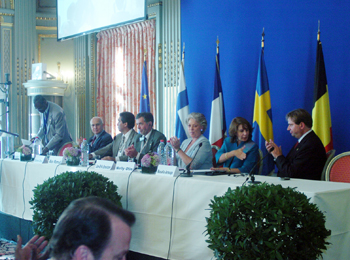 |
|||
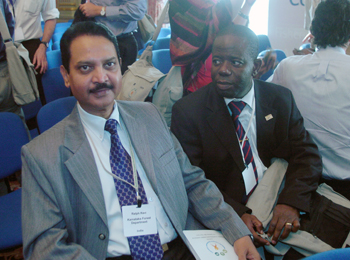 |
|||||
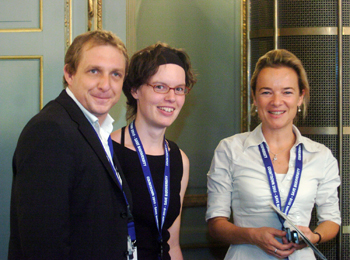 |
|||||
| Ravi Ralph, India, and Djafarou Ali Tiomoko, Benin | |||||
|
IUCN Communications team. L-R: Dirk Hendricks, Wiebke Herding, and Claire Warmenbol |
|||||
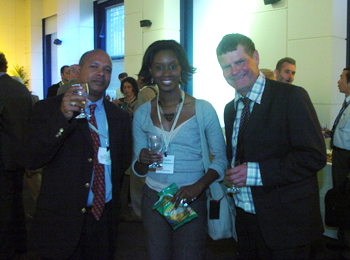 |
|||
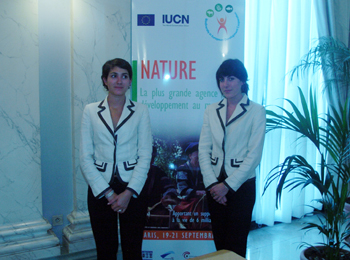 |
|||
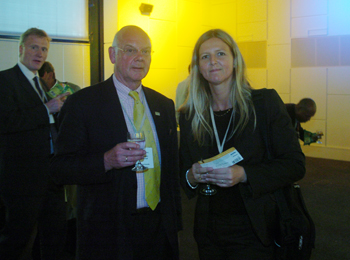 |
|||
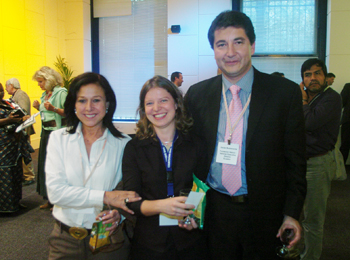 |
|||
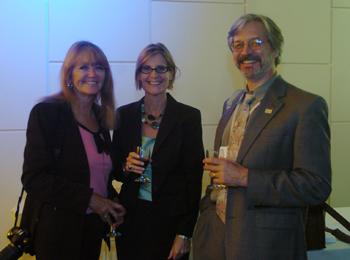 |
|||
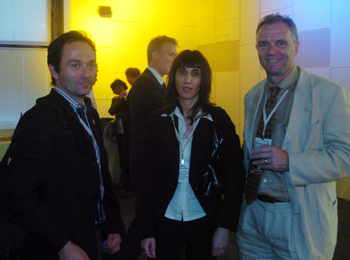 |
|||
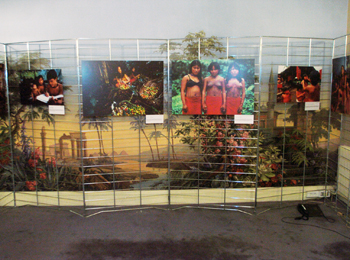 |
|||
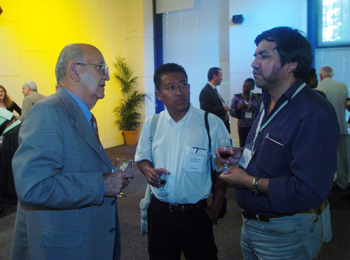 |
|||
|
Related links
|
|||
|
Links to IISD RS coverage
|
|||
|
|
|||
|
|
|
|
|
|
|


